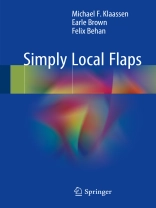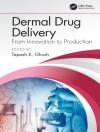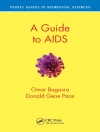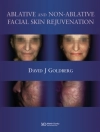This book provides a useful framework for categorizing local flaps on the basis of their composition, blood supply, geometry and means of transfer. The initial chapters are dedicated to the fundamentals – the basic procedures, how to get started, and technical tips – as well as advice on wound care and scar management.
These practical pointers are essential for students of plastic surgery, while also offering helpful refreshers for experienced practitioners. The subsequent chapters describe the types of flaps that are traditionally taught and the 10 most common flaps. There is also a practical guide to W-plasty, Z-plasty and their various modifications, which can be applied to both scar revision and the closure of the donor sites. The book also discusses the Keystone Perforator Island Flap (KPIF) and its application to various body sites, offering elegant solutions to some very tricky situations. In turn, the book’s final chapters are focused on assessment, decision-making an
d lessons learned – essentially, how to decide if a skin graft is the better choice, matters relating to aesthetics, and dealing with complications.
Rather than demonstrate exactly how to execute flaps, the book’s primary goal is to inspire students and trainees to think about the reconstructive problem, consider all patient-related and anatomical factors, and accurately recognize what can feasibly be achieved.
قائمة المحتويات
Introduction: Definitions: What are local flaps?.- Classification of local flaps.- Advancement flaps.- Flaps that rotate around a pivot point.- Flaps that move on a hinge.- Flaps combining movement around a pivot and rotation (Single convergent triangular flaps and Double convergent triangular flaps).- Rotation advancement flaps.
Fundamentals of clinical application: Getting started: Drawing & Planning.- Technical surgical tips.- Traditional local flaps.- Modern local flaps.- Where skin grafts are better.- Aesthetica concepts.- Complications & how to manage.- How to think like a plastic surgeon.
عن المؤلف
Michael F Klaassen born in Otahuhu in 1956, graduated from Otago University, New Zealand with an MBCh B in 1980. He qualified as a plastic surgeon in 1990 with FRACS, before working in the UK, Europe and Australia for three years. After a decade in the Waikato and half a decade in Sydney, he returned to Auckland in 2008 and opened Parnell Surgeon in April 2012. He now has six visiting clinics in New Zealand. Dr. Klaassen coaches trainees for the final fellowship exam and has been a volunteer plastic surgeon with Interplast Australia & New Zealand since 1990.
Earle Brown was born in Otago and graduated from Otago University, New Zealand with an MBCh B in 1960. He initially trained in general surgery, gaining the FRCS, and subsequently in plastic surgery, gaining the FRACS in 1970. He trained under Sir William Manchester and Mr John Williams before heading to Glasgow and returning to Middlemore Hospital, Auckland, where he was a cosultant plastic surgeon from 1970 to
2005, including roles as Head of Department and Director of Surgery. He has been retired from active plastic surgery for a number of years but is still active in teaching and writing with Michael Klaassen.
Felix Behan was born in Queensland, graduated in medicine from University of Queensland in 1964, and trained in plastic surgery under Sir Benjamin Rank in Melbourne, gaining his FRACS in 1970. He then spent time in London Hospital clinical posts and as a Nuffield research fellow at the RCS, investigating the vascularity of tissue flaps. He returned to Melbourne as Sir Benjamin`s aide de camp and as a consultant plastic surgeon at the Peter Mac Callum Cancer Institute and The Western Hospital, where he served as Chief of Plastic, Reconstructive and Hand Surgery for many years. In his retirement he is still a tireless writer and enthusiastic teacher of plastic surgery, one of its greatest legacies.












